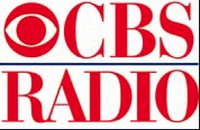Speaking at the company's first investor day since 2011, Moonves said the media company would explore a number of different options, including a possible spin off similar to the one it did with its outdoor advertising business in 2014.
He emphasized that discussions were in the early stages and that the company would be "prudent and judicious" in reviewing their options for CBS Radio, which has over 117 stations.
Although it’s off to a good start in 2016 — CBS Radio recently reported a 5 percent increase in listeners for January — headwinds have been hurting the industry for years.
Sales at the radio division fell 5 percent in the fourth quarter, while the overall company posted a 6 percent revenue gain.
 |
| Les Moonves |
According to the NY Post, The CEO was referring to the spinoff of the outdoor billboard division in 2014, which was then converted into a tax-saving real estate investment trust, or REIT. Those moves allowed CBS to exchange its remaining 81 percent of CBS Outdoor shares into CBS shares.
Investors weren’t that moved by Moonves’ assurances about the radio arm. CBS shares fell 1.3 percent, to close at $52.59 per share.
CBS Radio may be more difficult to unload than CBS Outdoor. As the fourth-largest radio operator behind iHeartMedia, Cumulus and Townsquare, few strategic buyers are in a position to absorb it.
All of its larger competitors are burdened with debt loads that make it unlikely they can afford what Moonves would consider a fair price to part with the assets.
Private equity firms, which once loved the radio business for its cash-generating ability, are also less interested, having seen so many peers choke on overleveraged investments in the industry.
Throughout the investor presentations, Moonves and other executives spoke with optimism about the future of CBS, whose shows include "The Big Bang Theory" and "The Good Wife," and which also owns premium cable service Showtime.
The company announced it expects to receive $2.5 billion a year by 2020 in retransmission licensing fees from pay TV operators and reverse compensation fees from broadcast stations for the rights to air its shows. That target was up from a previous target of $2 billion a year.
Additionally, the media company said it expects to see $800 million in revenue from top streaming services, including $400 million from its own All Access streaming service.
By 2020, CBS expects 40 percent of its revenue will come from advertising, down from 50 percent currently.
CBS has focused in ramping up its All Access streaming service, which is less than two years old.
During the investor day, the company announced plans to roll out three to four original shows a year starting in 2017 and expects to have 4 million subscribers by 2020.
When asked about whether CBS was going to be able to grow subscriptions at a rapid enough pace to cover costs of producing three to four original shows.
"We damn well better or we are in the wrong business," he said.
CBS Radio is one of the oldest units within CBS Corporation, and has been around since 1928.
 |
| William S. Paley |
In the 1930s, CBS became a leader in radio dramas and boasted such talent as Orson Welles and Norman Corwin, said Ron Simon, curator for TV and radio at the Paley Center for Media in New York, reports The LA Times.
“They created dramas that lived on in listeners' minds,” Simon said.
CBS would boast some of the most popular entertainers, such as Eddie Cantor, Al Jolson and eventually Bing Crosby, Jack Benny and Red Skelton. Some of those comedians came over in Paley's raids on NBC for entertainers, Simon said, and eventually would help launch the CBS television network.
“That talent would become trailblazers in television,” Simon said.
CBS Radio's most important contribution, according to the historians, was its vaunted news operation.
 |
| Edward R. Murrow |
Murrow and his team of fellow correspondents, the so-called Murrow Boys, provided live dispatches from trouble spots with an immediacy that eclipsed newspapers and magazines.
“The hallmark of CBS was its news reporting and journalistic integrity,” Schneider said. “It was CBS' finest hour.”
The company that would become CBS Radio was founded in 1972 as Infinity Broadcasting Corporation by Michael A. Wiener and Gerald Carrus, with the acquisition of KOME, an FM radio station that served the San Francisco Bay Area. It became a publicly traded company twice, in 1986, and again in 1992.
Westinghouse Electric Corporation, which acquired CBS, Inc. in 1995, acquired Infinity Broadcasting in 1997. Westinghouse, which established modern broadcasting on November 2, 1920, with KDKA in Pittsburgh, Pennsylvania, would later change its name to CBS Corporation, and reorganize all of its radio properties (including its own Group W stations), as well as its outdoor advertising business, under the Infinity Broadcasting Corporation name. Westinghouse acquired American Radio Systems in 1997. In 1999, CBS Corporation was merged into Viacom. On December 14, 2005, Viacom spun out its motion picture and cable television assets, with the remainder maintained as CBS Corporation In anticipation of this, Infinity Broadcasting was reorganized as CBS Radio.

No comments:
Post a Comment
Note: Only a member of this blog may post a comment.